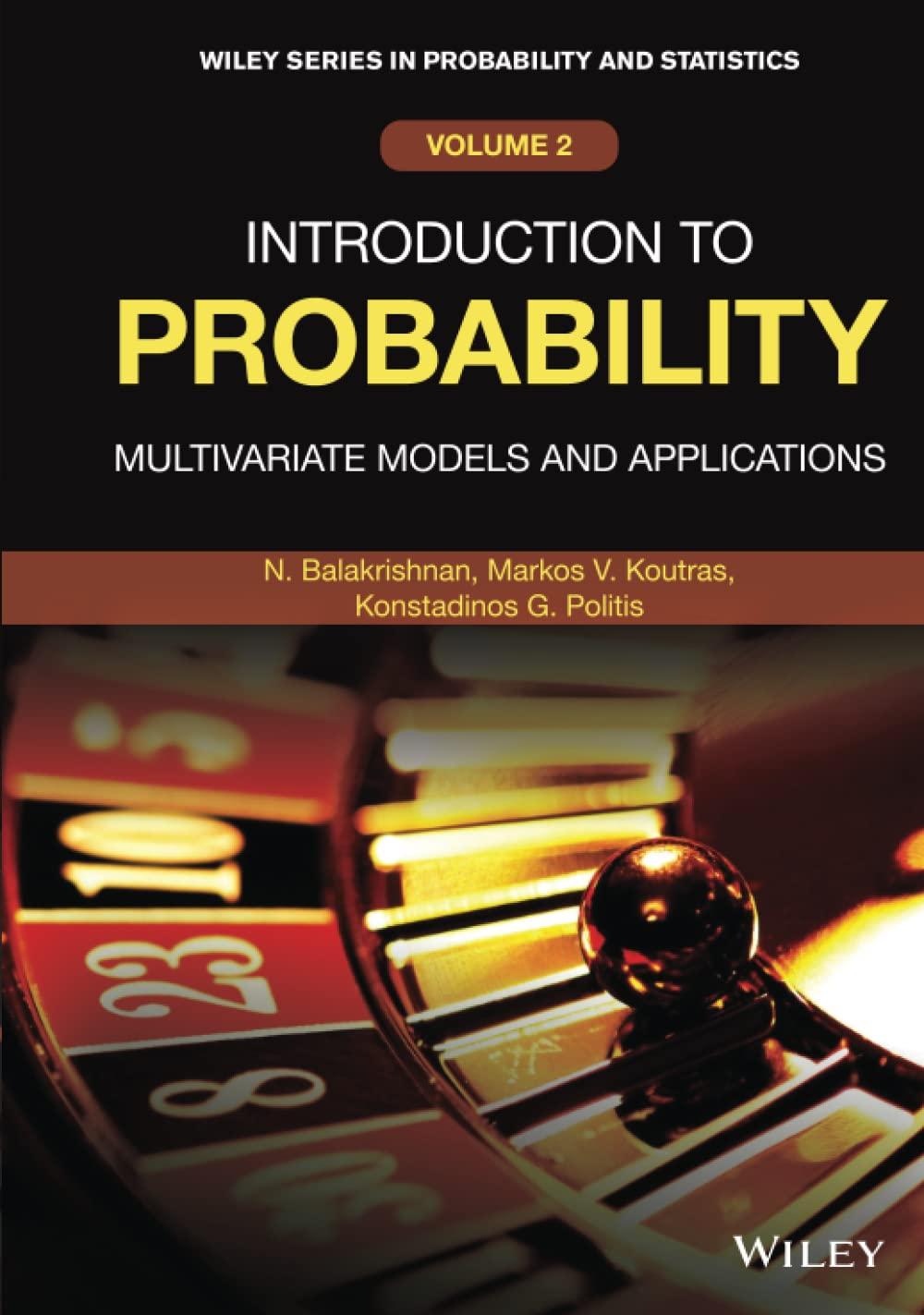In a population of microorganisms, we assume that each individual can produce 0, 1, or 2 new
Question:
In a population of microorganisms, we assume that each individual can produce 0, 1, or 2 new microorganisms with probabilities 1∕5, 3∕5, and 1∕5, respectively.
Starting from a single individual (considered as the zeroth generation), let Xi be the number of microorganisms in the ith generation of this population.
(i) Find the probability function and the distribution function of X1, the number of individuals in the first generation.
(ii) Derive the probability function of X2, the second-generation individuals.
Here, the assumptions are that each individual is reproduced independently of any other, and that no individual of the ith generation is present in the (i + 1)th generation.
Step by Step Answer:

Introduction To Probability Volume 2
ISBN: 9781118123331
1st Edition
Authors: Narayanaswamy Balakrishnan, Markos V. Koutras, Konstadinos G. Politis






